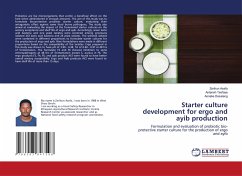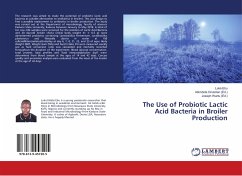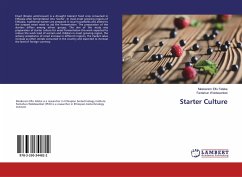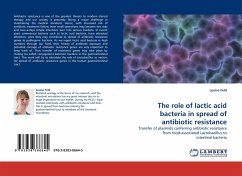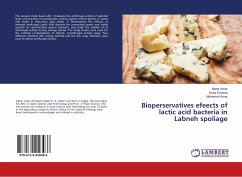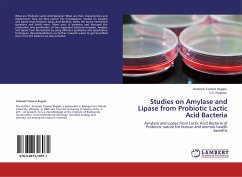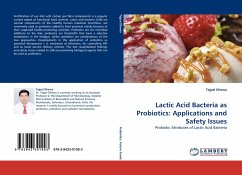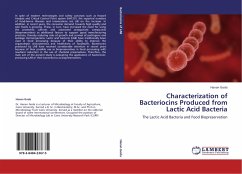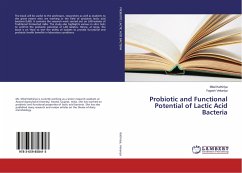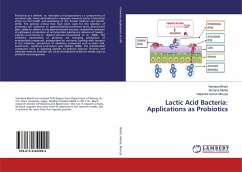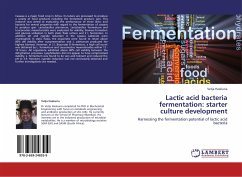
Lactic acid bacteria fermentation: starter culture development
Harnessing the fermentation potential of lactic acid bacteria
Versandkostenfrei!
Versandfertig in 6-10 Tagen
32,99 €
inkl. MwSt.

PAYBACK Punkte
16 °P sammeln!
Cassava is a major food crop in Africa. Its tubers are processed to produce a variety of food products including the fermented product, gari. This research was aimed at evaluating the performance of three lactic acid bacteria for several properties with regard to the fermentation of cassava to produce gari. Lactobacillus plantarum, Lactobacillus fermentum and Leuconostoc mesenteroides were evaluated for viability, biomass formation and glucose utilisation in both static flask culture and 2 L fermenters. In addition pH and cyanide reduction in the cassava substrate were investigated. In static ...
Cassava is a major food crop in Africa. Its tubers are processed to produce a variety of food products including the fermented product, gari. This research was aimed at evaluating the performance of three lactic acid bacteria for several properties with regard to the fermentation of cassava to produce gari. Lactobacillus plantarum, Lactobacillus fermentum and Leuconostoc mesenteroides were evaluated for viability, biomass formation and glucose utilisation in both static flask culture and 2 L fermenters. In addition pH and cyanide reduction in the cassava substrate were investigated. In static flasks, the organisms were found to retain above 80% cell viability after cryopreservation and L. plantarum produced the highest biomass. However, in 2 L Braunstat B fermenters, a high cell count was obtained by L. fermentum and Leuconostoc mesenteroides within 12 - 15 hours. All orgasnisms exhibited above 80% cell viability between the dehydration processes. Lyophilisation did not appear tohave compromised viability. L. fermentum was found to be very acid tolerant and reduced the pH to 3.9. However, cyanide reduction was not conclusively obtained and further investigations are needed.



